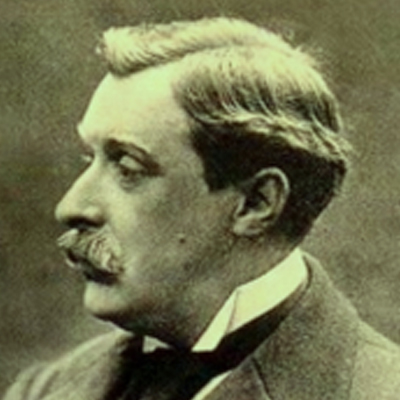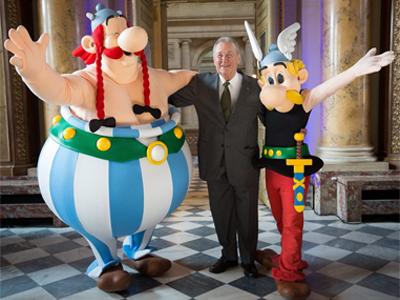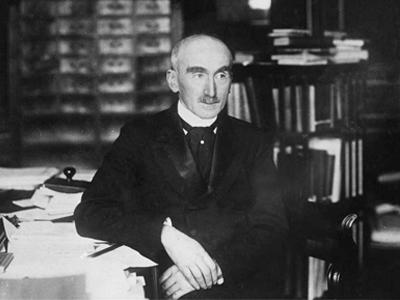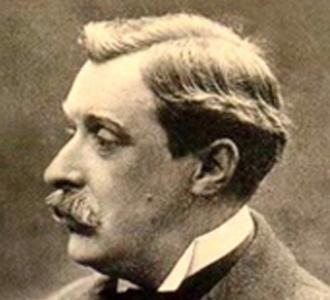
“Ahora entramos en época electoral y todos salen con los dientes nuevos y bien peinados, y sacan afiches prometiendo, como gran mérito, la honestidad… Con lo cual, no robar pasa a ser una especie de… opcional. Vea: ningún coche hace propaganda diciendo que tiene ruedas o parabrisas, eso es estándar… Y hoy parece ser que si sos honesto, sos una especie de GTX súper de lujo full equipo de la política”. (1)
Mauricio Borensztein (Tato Bores) (1925-1996)
La Galia, región del Viejo Continente, ancestralmente sufrió vicisitudes de todo tipo, muchas nefastas como la apropiación violenta del Imperio Romano un poco antes de nuestra Era, que bien recrearon humorísticamente con “Astérix (Astérix le Gaulois)” los extraordinarios creadores René Goscinny (1926-1977) (guiones) y Albert Uderzo (1927-2020) (dibujos).
El 29 de octubre de 1959 iniciaron su publicación periódica como una sección en la revista de interés general “Pilote” (Piloto) (1959-1989). Los primeros 300.000 ejemplares se agotaron en un día cuyo público principal inicialmente fueron los jóvenes.
Han superado los 400.000.000 de ejemplares en más de un centenar de traducciones a muy diversos idiomas.
El éxito fue tan notorio que la revista, con variedad de artículos, incorporó desde el 22 de julio de 1965 el subtítulo "Le Journal d'Astérix et Obélix" (la revista de Astérix y Obélix), demostrando el interés por el humor sobre otras cuestiones y noticias que aunque importantes poco le cambian positivamente la vida a muchos sobre todo a los jóvenes con realidades políticas perjudiciales y horizontes inciertos; como en la actualidad.
Han pasado seis décadas y los diarios de mañana en muchos países parecerán que la historia se repite como farsa dramática, incluyendo autoritarios y venales de pacotilla.
A lo largo de los siglos Francia ha aportado geniales creativos en los más diversos legados gráficos, literarios, escénicos, etcétera y, por caso, destacados pensadores como Henry Bergson (1859-1941): “Se consigue un efecto cómico cuando, al emplear una expresión en su sentido figurado, se afecta entenderla en el sentido real. O también: no bien nuestra atención se concentra sobre la materialidad de una metáfora, la idea expresada resultará cómica”. (2)
CASI TODO ES POSIBLE
Los comicios en los sistemas de renovación gubernamental y legislativos son, desde hace mucho, escenarios privilegiados para el ejercicio del humor en sus más diversas variantes como, por caso, los chistes que se difunden ampliamente aportando peculiares puntos de vista referidos a las pujas por alcanzar o mantener el poder, invocando el poco creíble únicamente interés por el bienestar de la gente. Es tan difuso como una bruma que vela.
Otra fuente inagotable de humor son los discursos de los candidatos con sus desopilantes promesas electorales que al tiempo son olvidadas. Argentina: construcción de un tren de alta velocidad, 2006: Córdoba, Rosario y Buenos Aires, viajes a la estratósfera 1996 con base en Argentina, línea aérea Ushuaia Antártida 2024, etcétera, mientras el país subsiste con altas tasas de pobreza, corrupción desmadrada, impunidad de venales empleados públicos multimillonarios, aberrantes actos de violencia partidaria, burdo nepotismo, concentración del poder con políticas personalistas, nepostimo explícito, etcétera.
Al respecto, el célebre humorista y periodista francés Charles Alphonse Allais (1854-1905) creó al Captain Cap, sobrenombre de su amigo Albert Caperon (1865-1898), como candidato en las elecciones legislativas locales del 20 de agosto de 1893, en el IX Distrito, 2 ͣ circunscripción, de París, Francia.
Fue una ficción absurda creída sin la menor duda por muchos electores poco precavidos pues casi triunfa por el voto popular. Consistió en una buena prueba del humor inteligente ante la política cada vez más absurda donde hasta los corruptos condenados se victimizan a extremos peregrinos, existiendo grupos que apoyan a los ladrones y otros delincuentes, si reciben algún beneficio material como jubilaciones sin aportes previsionales, puestos rentados con el dinero de los contribuyentes para trabajar por difusas causas triunfalistas, repitiendo consignas anacrónicas, etcétera.
EN DETALLE
En su genial parábola, documentada como pocos postulantes circunspectos lo hacen en el siglo XXI, transcribe las supuestas actas de sus reuniones, la plataforma electoral, discursos, proclamas, reproducciones de recortes periodísticos, apostillas biográficas, proyectos como el crear las comunicaciones interplanetarias: “Si realmente, en el seno de los planetas circundantes hierven mundos animados, ¿cómo hacer para avisarles que la tierra, nuestra pequeña tierra querida, está poblada de seres inteligentes (hablo de mis lectores) capaces de entrar en comunicación con ellos”. Y esboza su plan anticipatorio: “Movilizar, durante una hora, a toda la especie humana, a todos los animales, todas las campanas, todas las pistolas (…) todas las asambleas deliberantes, (…) las suegras, en una palabra todos los seres u objetos capaces de producir ruido”, esperar el doble del tiempo adecuado, “si no escuchamos ningún clamor astral es que los marcianos son sordos como tapias o que les importa tanto de nosotros como su primera cerveza de marzo”. (El mes y el planeta, en francés se escriben igual).
Su propuesta estuvo centrada en la “supresión del impuesto a las bicicletas, el restablecimiento de la libertad de las costumbres en las calles con vistas a la repoblación, (…) supresión de la burocracia”.
Se presenta como un hombre de acción capaz de hacer ‘florecer de nuevo, con más brillo que nunca, la lealtad y el amor a la Patria, esas dos flores simbólicas (…)”. (3)
La ridiculización es una artera estrategia humorística donde la crítica social se explaya certeramente aunque a los directamente aludidos poca mella les haga, pareciendo que la reiteración de conductas venales contribuyen, a veces, a resonantes éxitos engrosando notoriamente sus patrimonios personales.
TAMBIÉN
Otra burda y risible forma son las candidaturas testimoniales donde ciertos postulantes formales se presentan para engañar al electorado a sabiendas que si triunfan no asumirán más allá que en las campañas afirmaron lo contrario, pues lo que hicieron fue prostituir su nombre y conocimiento público para atraer anodinamente a parte del electorado, mediante una estafa enlodada de aparentes buenas intenciones. El humor lo ha denunciado varias veces.
Como el humor de Allais, en el presente, cada tanto, hay convocatorias universales para realizar una actividad en común con iguales o peores resultados, se construyen candidatos de la nada y duran casi nada, algunos suponen creíbles las más anodinas promesas de quienes, recién en las campañas y por tres o cuatro meses, se preocupan por la gente mientras se agreden entre sí cuidándose de evitar discutir ideas, formulan banales, prosaicas y genéricas romerías futuristas superando al humor más sofisticado, obligándonos, a veces, a consultar el diccionario o al horóscopo chino para comprender acabadamente de qué se trata y valorando aún más a los muchísimos políticos cabales.
Aunque las elecciones no tengan ni un mijito de cómico, la democracia cualificada debe continuar explorando diversos caminos que conduzcan a la equidad, la libertad y al desarrollo individual como de las sociedades en su conjunto; en serio.
ADEMÁS
El genial y disruptivo intelectual Alphonse Allais, que bien vale la pena conocerlo o releerlo con ojos del presente siglo, tan contradictorio con frecuencia perverso, también en 1878 fue uno de los principales impulsores acompañando al genial periodista y novelista Émile Goudeau (1849-1906) del destacado grupo (círculo) literario “Club des Hydropathes”, (repulsión por el agua) que, en bohemia, reunió a destacados poetas, novelistas, artistas, nóveles estudiantes, etcétera, que publicó durante 32 números la revista L'Hydropathe, incluyendo en forma significativa al humor gráfico y literario.
La iniciativa concluyó en 1880 con varios intentos posteriores esporádicos de volver al ruedo.
Así mismo participó del peculiar movimiento fumista que se caracterizó notablemente por un tipo de humor bromista y burlón, en el Siglo XIX.
En este contexto publicó: “Charles Cros”, “La ternera”, “Mr. Edison”, “La muerte de Charles Cros” y “Un drama parisino”, incluidos en “Dix ans de bohème” (Diez años de bohemia) de Émile Goudeau.
Tengamos presente a la “Belle Époque” en todo su esplendor, acallando las nefastas consecuencias de la “guerra franco-prusiana” (1870-1871) y velando las lacerantes llagas sociales, económicas y autoritarismos que se expandían hasta el horizonte donde poco a poco emergía la “I Guerra Mundial” (1914-1918) con millones de muertos, heridos y devastadas poblaciones empobrecidas, más autócratas de pensamiento único, racismo, aniquilamiento por razones ideológicas, etcétera.
Cabe recordar el humor absurdo, donde el sentido común puede estar ausente, desde sus inicios tuvo gran popularidad, donde surgieron notables exponentes.
También se desarrolló el surrealismo (por encima del realismo) 1917 (Wilhelm Albert Włodzimierz Aleksander Apolinary Kostrowicki, Guillaume Apollinaire, (1880-1918) pero eso ya es otra historia, aunque vale recordar aquí su “Primer Manifiesto”.
“Lo único que todavía me exalta es la palabra libertad. La creo capaz de mantener indefinidamente el viejo fanatismo humano. Responde, sin lugar a dudas, a mi única aspiración legítima. Entre tantos infortunios que heredamos hay que reconocer que también nos han dejado la máxima libertad espiritual. Depende de nosotros no hacer de ella un uso equivocado. Reducir la imaginación a la esclavitud, aun cuando sea en provecho de lo que se llama groseramente felicidad, significa alejarse de todo lo que, en lo más hondo de uno mismo, existe de justicia suprema. La imaginación sola me informa sobre lo que puede ser, y esto ya es suficiente para atenuar algo la terrible prohibición, y quizá también para que yo me abandone a ella sin temor de engañarme (como si hubiera posibilidad de engañarse más aún). ¿Dónde la imaginación comienza a hacerse peligrosa y dónde cesa la seguridad del espíritu? Para el espíritu, la posibilidad de errar ¿no constituirá quizás la contingencia del bien? Queda la locura, ‘la locura que se encierra’, como se dice con acierto. Ésa o la otra... Todos saben, en efecto, que los locos sólo deben su internación a una pequeña cantidad de actos reprimidos por las leyes y que, a no mediar tales actos, su libertad (por lo menos lo visible de su libertad) no estaría en juego. Me inclino a creer que tales seres son víctimas en alguna forma de su imaginación que los impulsa a la inobservancia de ciertas reglas, al rebasar las cuales el género humano se siente amenazado, hecho que todos hemos pagado con nuestra experiencia. Pero la profunda despreocupación que demuestran hacia las críticas que se les dirigen, y aun hacia los diversos correctivos que se les infligen, permite suponer que ellos obtienen tan elevado confortamiento de su imaginación y gozan tanto con su delirio que no pueden admitir que sólo sea válido para ellos. Por esta razón, las alucinaciones, las ilusiones, etc., no constituyen fuentes de goce despreciables”. (4)
FINALE ABIERTO
Uno de los principales estudiosos del Humor, el francés Robert Escarpit (1918-2000) concluyó su extraordinario ensayo atinente, apuntando que: “Parece, sin embargo, que al cabo de este estudio es posible entrever una forma general, un movimiento, una intensión, lo que la lengua inglesa llamaría pattern (mal que les pese a los puristas, no hay traducción de esta palabra). Se trata de una voluntad y al mismo tiempo un medio de romper el círculo de los automatismos que, mortalmente maternales, la vida en sociedad y la vida simplemente cristalizan a nuestro alrededor como una protección o como una mortaja. El hombre sin humor vive la vida de las larvas, bajo su envoltura de seda, seguro de un porvenir sin duración, semiconsciente, inmodificable. El humor abre el capullo a la vida, al progreso, al riesgo de existir.
Muy a menudo solo sale de él una polilla vulgar y sin interés, pero a veces surge la mariposa multicolor con una risa semejante a la de los dioses, o bien se adivina en la sombra el misterioso desplegar de las alas de una falena del color de la noche”. (5)
NOTA Y REFERENCIAS
1) Bores, Tato. En Bolterri, Sebastián. Tato Bores, el comediante que convirtió la política argentina en un acto tragicómico: cinco monólogos imperdibles. Teleshow.. Buenos Aires, Argentina. 27 de abril de 2025.
2) Bergson, Henry. La risa. Editorial Porrúa. Página 85. México, México. 1999.
3) Allais, Alphonse. El Capitán Cap. Páginas 8, 9, 53, 54 y 55. Centro Editor de América latina. Buenos Aires, Argentina. Noviembre de 1972.
4) Breton, André. Primer manifiesto del surrealismo. París, Francia. 15 de octubre de 1924.
5) Escarpit, Robert. El Humor. EUDEBA: Segunda edición. Página 131. Buenos Aires, Argentina. Mayo de 1972.

Albert Uderzo con Astérix y Obélix

Henri Bergson

Alphonse Allais

Robert Escarpit
Charles Alphonse Allais: His humorous fiction is very real and current
By Alejandro Rojo Vivot
“We are now entering election season and everyone shows up with brand-new teeth and neatly combed hair, putting up posters promising honesty as a great merit... Which means, not stealing becomes a sort of... optional. Look: no car advertises that it has wheels or windshields, that’s standard... And today it seems that if you are honest, you’re like some kind of luxury GTX fully loaded model in politics.” (1)
Mauricio Borensztein (Tato Bores) (1925-1996)
Gaul, a region of the Old Continent, ancestrally suffered all kinds of vicissitudes, many disastrous ones such as the violent appropriation by the Roman Empire shortly before our Era, brilliantly recreated humorously with Astérix (Astérix le Gaulois) by the extraordinary creators René Goscinny (1926-1977) (scripts) and Albert Uderzo (1927-2020) (drawings).
On October 29, 1959, they began publishing periodically as a section in the general-interest magazine Pilote (1959-1989). The first 300,000 copies sold out in a single day, initially appealing mainly to young readers.
They have surpassed 400,000,000 copies in more than one hundred translations into many different languages.
The success was so remarkable that the magazine, with its variety of articles, adopted the subtitle Le Journal d’Astérix et Obélix (the Asterix and Obelix magazine) from July 22, 1965, demonstrating the public’s interest in humor dealing with other issues and news which, although important, rarely improve the daily lives of many, especially young people facing harmful political realities and uncertain horizons; much like today.
Six decades have passed and tomorrow’s newspapers in many countries will seem like history repeating itself as a dramatic farce, including petty authoritarians and venal opportunists.
Throughout the centuries, France has contributed brilliant creators in the most diverse graphic, literary, and scenic legacies, and, for instance, notable thinkers such as Henry Bergson (1859-1941): “A comic effect is obtained when, in using an expression in its figurative sense, we pretend to understand it in its literal sense. Or also: as soon as our attention is drawn to the materiality of a metaphor, the expressed idea will appear comic.” (2)
ALMOST ANYTHING IS POSSIBLE
Elections in systems of governmental and legislative renewal have long been privileged scenarios for the exercise of humor in its most diverse forms, such as the widely spread jokes that provide peculiar perspectives on the struggles to gain or maintain power, all while invoking the hardly believable claim of being solely interested in the people’s well-being. It is as diffuse as a fog that obscures.
Another inexhaustible source of humor lies in candidates’ speeches, with their hilarious electoral promises that are soon forgotten. Argentina: the construction of a high-speed train, 2006: Córdoba, Rosario, and Buenos Aires; trips to the stratosphere in 1996 with a base in Argentina; the Ushuaia–Antarctica airline in 2024; etc. —while the country continues to endure high poverty rates, rampant corruption, impunity for millionaire public officials, appalling acts of partisan violence, crude nepotism, concentration of power through personalist policies, explicit nepotism, and so on.
In this regard, the famous French humorist and journalist Charles Alphonse Allais (1854-1905) created Captain Cap, the nickname of his friend Albert Caperon (1865-1898), as a candidate in the local legislative elections of August 20, 1893, in the IX District, 2nd constituency of Paris, France.
It was an absurd fiction, yet believed without the slightest doubt by many unsuspecting voters, as he nearly triumphed by popular vote. It was an excellent test of intelligent humor in the face of increasingly absurd politics, where even convicted corrupt officials portray themselves as victims in farcical extremes, with groups supporting thieves and other criminals if they receive some material benefit such as pensions without contributions, paid posts funded by taxpayers to work for vague triumphalist causes, repeating anachronistic slogans, and so on.
IN DETAIL
In his brilliant parable, documented as few serious candidates would dare in the 21st century, he transcribes the supposed minutes of his meetings, the electoral platform, speeches, proclamations, reproductions of press clippings, biographical notes, and projects such as establishing interplanetary communications:
“If indeed, within the surrounding planets boil animated worlds, how shall we let them know that Earth, our dear little Earth, is populated by intelligent beings (I speak of my readers) capable of establishing communication with them.”
And he outlines his anticipatory plan: “Mobilize, for one hour, the entire human species, all the animals, all the bells, all the pistols (…) all deliberative assemblies, (…) mothers-in-law, in a word all beings or objects capable of producing noise,” then wait twice the necessary time: “if we do not hear any astral clamor, it means that Martians are as deaf as posts, or that they care as much about us as for their first beer in March.” (Month and planet are spelled the same in French).
His proposals focused on the “abolition of the bicycle tax, the restoration of freedom of customs in the streets with a view to repopulation, (…) abolition of bureaucracy.”
He presented himself as a man of action capable of making “loyalty and love of the Fatherland flourish again, brighter than ever, those two symbolic flowers (…)”. (3)
Ridicule is a cunning humoristic strategy where social criticism unfolds with precision, even if it hardly affects those directly targeted, as the repetition of venal conduct sometimes contributes to resounding success, notably enriching their personal fortunes.
ALSO
Another crude and laughable form is the testimonial candidacies, where certain formal candidates run to deceive the electorate, fully aware that if they win, they will not assume office despite claiming otherwise during their campaigns, as what they have done is prostitute their name and public recognition to trivially attract part of the electorate through a scam clouded with apparent good intentions. Humor has denounced this several times.
Like Allais’ humor, even today, universal calls happen from time to time to carry out a common activity with equal or worse results; candidates are constructed out of nothing and last almost nothing. Some find the most trivial promises credible from those who only at campaign time — for three or four months — care about the people while attacking each other carefully avoiding debating ideas, proposing banal, prosaic, and generic future parades surpassing even the most sophisticated humor, sometimes forcing us to consult the dictionary or the Chinese horoscope to fully understand what is going on, making us appreciate the very many reliable politicians even more.
Although elections have not a shred of comedy, qualified democracy must continue exploring various paths to reach equity, freedom, and the development of individuals as well as societies as a whole; seriously.
MOREOVER
The brilliant and disruptive intellectual Alphonse Allais, well worth knowing or rereading through the eyes of the present century, frequently contradictory and perversely so, was in 1878 one of the main promoters alongside the brilliant journalist and novelist Émile Goudeau (1849-1906) of the notable literary circle “Club des Hydropathes” (water haters), which in bohemia gathered prominent poets, novelists, artists, young students, etc., publishing for 32 issues the magazine L'Hydropathe, significantly including graphic and literary humor.
The initiative ended in 1880 with several sporadic attempts to return to the field.
He also participated in the peculiar fumiste movement, marked notably by playful and mocking humor in the 19th century.
In this context, he published works such as: “Charles Cros,” “The Calf,” “Mr. Edison,” “The Death of Charles Cros,” and “A Parisian Drama,” included in Émile Goudeau's Dix ans de bohème (Ten Years of Bohemia).
Let us recall the Belle Époque in all its splendor, silencing the disastrous consequences of the “Franco-Prussian War” (1870-1871) and veiling the painful social, economic, and authoritarian wounds spreading until the horizon where slowly emerged “World War I” (1914-1918) with millions dead, wounded, and devastated impoverished populations, plus autocrats of single thought, racism, annihilation for ideological reasons, etc.
One must remember absurd humor, where common sense may be absent, which from its beginnings enjoyed great popularity, producing notable exponents.
Also developed was surrealism (beyond realism) in 1917 (Wilhelm Albert Włodzimierz Aleksander Kostrowicki, Guillaume Apollinaire (1880-1918)), but that is another story, although it’s worth mentioning here his “First Manifesto.”
“The only thing that still excites me is the word freedom. I believe it is capable of indefinitely maintaining the old human fanaticism. It undoubtedly responds to my only legitimate aspiration. Among so many misfortunes we inherit, we must recognize that they have also left us maximum spiritual freedom. It depends on us not to misuse it. To reduce imagination to slavery, even if for what is crudely called happiness, means moving away from all that in the deepest part of oneself exists as supreme justice. Only imagination informs me of what could be, and this is enough to somewhat soften the terrible prohibition, and perhaps also to allow me to abandon myself to it without fear of deceiving myself (as if there was a possibility to deceive oneself even more). Where does imagination begin to be dangerous and where does the safety of the spirit end? For the spirit, might the possibility of error constitute perhaps the contingency of good? There remains madness, 'the madness that confines itself,' as is aptly said. This or that... Everyone knows, indeed, that the insane owe their confinement only to a few acts prohibited by law and that without such acts, their freedom (at least the visible part) would not be at risk. I tend to believe that such beings are victims in some way of their imagination, which drives them to disregard certain rules, beyond which humanity feels threatened — a fact we have all paid for through experience. But the profound disregard they show towards criticism and corrective measures suggests that they gain such high comfort from their imagination and enjoy their delirium so much that they cannot admit it is only valid for themselves. For this reason, hallucinations, illusions, etc., are not insignificant sources of pleasure.” (4)
OPEN FINALE
One of the foremost humor scholars, Frenchman Robert Escarpit (1918-2000), concluded his extraordinary relevant essay stating: “It seems, however, that by the end of this study it is possible to glimpse a general form, a movement, an intention, which the English language would call a pattern (no matter what purists say, there is no translation of this word). It is a will and at the same time a means to break the cycle of automatisms that, mortally maternal, social life and mere life crystallize around us as protection or shroud. A man without humor lives the life of larvae, under his silk envelope, sure of a future without duration, semi-conscious, unchangeable. Humor opens the cocoon to life, progress, the risk of existing. Very often only a vulgar and uninteresting moth emerges, but sometimes the multicolored butterfly rises with a laughter similar to that of the gods, or one guesses in the shadow the mysterious unfolding of the wings of a dark-colored moth.” (5)
NOTE AND REFERENCESBores, Tato. In Bolterri, Sebastián. Tato Bores, the comedian who turned Argentine politics into a tragicomic act: five unmissable monologues. Teleshow. Buenos Aires, Argentina. April 27, 2025.
- Bergson, Henry. Laughter. Editorial Porrúa. Page 85. Mexico City, Mexico. 1999.
- Allais, Alphonse. Captain Cap. Pages 8,9,53,54, and 55. Latin America Publishing Center. Buenos Aires, Argentina. November 1972.
- Breton, André. First Manifesto of Surrealism. Paris, France. October 15, 1924.
- Escarpit, Robert. Humor. EUDEBA: Second edition. Page 131. Buenos Aires, Argentina. May 1972.
(This text has been translated into English by ChatGPT)
